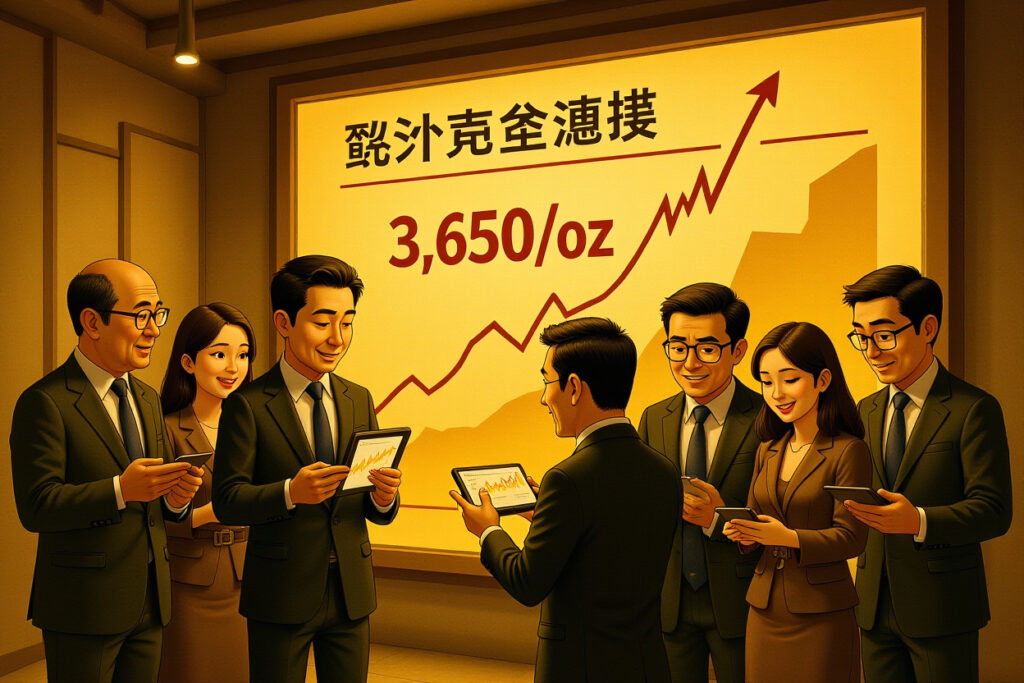The Sudden Fall of a Rising Star
On September 8, 2024, Xiaomi’s internal ethics committee sent shockwaves through China’s technology sector with a terse email announcement. Wang Teng, the high-profile China Region Marketing General Manager and Redmi Brand General Manager, had been terminated effective immediately for serious violations of company policies. The 35-year-old executive, once considered a protégé of Xiaomi founder Lei Jun (雷军), saw his nine-year career with the company end abruptly over allegations of leaking confidential information and engaging in activities that created conflicts of interest.
The internal communication emphasized Xiaomi’s zero-tolerance approach to such violations, stating the company maintains a strict position of no exceptions when it comes to protecting proprietary information. This immediate termination without the typical graceful exit options offered to senior executives signaled the severity of the situation and Xiaomi’s determination to send a clear message about compliance.
Wang Teng responded on his Weibo account with a brief statement: I feel ashamed and want to apologize to everyone. I made some mistakes in the past and accept the consequences. His social media profiles were quickly stripped of all Xiaomi affiliations, and his verification status was removed across platforms.
The Weight of Responsibility
As head of both China marketing and the Redmi brand, Wang Teng held critical knowledge about Xiaomi’s most sensitive business areas. His responsibilities included:
– Redmi product pricing strategies for upcoming devices
– China region offline channel policies and expansion plans
– AI smartphone marketing initiatives scheduled for late 2024
– Insight into supply chain costs and manufacturing timelines
With Redmi accounting for approximately 60% of Xiaomi’s smartphone shipments, any leak of this information could potentially compromise the company’s competitive positioning in China’s fiercely competitive mobile market.
Pattern of Behavior: From Minor Slips to Major Violations
This was not Wang Teng’s first encounter with Xiaomi’s confidentiality enforcement mechanisms. In 2022, he received formal discipline for prematurely revealing the launch date of the Redmi K50 model, resulting in performance bonus deductions and cancellation of promotion eligibility. At the time, Lei Jun personally cautioned him about the importance of discretion.
The pattern continued into 2024 when, just before the Xiaomi 15 series launch, mobile product manager Wei Siqi presented Wang Teng with a custom t-shirt bearing the characters 谨言慎行 (be cautious in speech and action) as a pointed reminder about information security protocols.
Xiaomi’s public relations head Wang Hua had even commented on social media just days before the termination that Wang Teng had been placed on leave specifically to prevent him from leaking information about upcoming products.
Corporate Culture of Confidentiality
Xiaomi has maintained rigorous information protection standards since its founding. All employees, from entry-level positions to senior executives, sign confidentiality agreements on their first day. The company’s internal policies explicitly prohibit unauthorized disclosure of product details, business strategies, or any proprietary information to external parties.
In December 2023, Xiaomi made examples of three employees who were terminated and permanently banned from reemployment for participating in external investment seminars about Xiaomi’s automotive division (SU7) where they shared fabricated information while collecting consulting fees. The company pursued legal action against these individuals, demonstrating its serious approach to protecting intellectual property.
The Career Trajectory of Wang Teng
Wang Teng joined Xiaomi in 2016 at age 29, bringing experience from previous roles at OPPO and 360 Mobile where he worked in product management positions. His career at Xiaomi progressed rapidly:
– 2020: Joined Redmi product team as Product Director
– 2021: Rotated to Henan branch company for regional experience
– 2023: Returned to Beijing headquarters as Redmi Brand Spokesperson and Marketing General Manager
– 2024: Promoted to Redmi Brand General Manager and China Region Marketing General Manager
At the time of his termination, Wang Teng held a Level 21 position within Xiaomi’s 22-level corporate hierarchy, placing him just one step below vice-presidential rank and the company’s highest leadership circle.
The Internet Persona: 大帝之姿 (Emperor’s Bearing)
Wang Teng had developed a significant online following and was known among tech enthusiasts by the nickname 大帝之姿 (dà dì zhī zī), which translates to having the bearing of an emperor. This reference originated from the popular Chinese web novel Zhetian, in which a character named Wang Teng is repeatedly described by his father as having the potential to become emperor.
This internet fame amplified the impact of his termination, with the phrase trending on social media alongside discussions about Xiaomi’s corporate governance and the pressures facing executives in China’s competitive technology sector.
Broader Implications for Xiaomi and Tech Industry
Wang Teng’s termination comes at a critical juncture for Xiaomi as the company expands into new product categories, particularly electric vehicles with its SU7 model. The automotive division represents a significant strategic investment and potential growth area beyond the increasingly competitive smartphone market.
Industry analysts note that the timing is particularly sensitive as Xiaomi prepares for several major product launches in the coming months. The company’s emphasis on confidentiality reflects the hyper-competitive nature of China’s technology sector, where product details and pricing strategies can significantly impact market performance.
Corporate Governance Challenges
Xiaomi’s handling of this situation highlights the challenges facing Chinese technology companies as they balance rapid growth with established corporate governance practices. The company’s firm response demonstrates its commitment to maintaining internal controls even when dealing with high-performing executives.
This incident follows similar high-profile terminations at other Chinese tech giants, including Alibaba’s dismissal of employees for policy violations and Tencent’s strict enforcement of anti-corruption measures. The industry-wide pattern suggests that as companies mature, they are placing increased emphasis on compliance and ethical standards.
Lessons for Technology Companies
The Wang Teng situation offers several important lessons for technology companies operating in competitive environments:
– Implement clear confidentiality protocols with regular training for all employees
– Establish consistent enforcement mechanisms regardless of employee seniority
– Create channels for reporting potential violations without fear of retaliation
– Regularly review and update information security measures as business evolves
– Balance the need for marketing buzz with protection of intellectual property
The Human Element in Corporate Compliance
Beyond policies and procedures, this case highlights the human factors in corporate compliance. Even experienced executives can make errors in judgment, particularly when navigating the complex relationships between personal brand building and corporate responsibilities.
The pressure on executives to maintain visibility and influence in China’s social media-driven tech landscape can sometimes conflict with corporate confidentiality requirements. Companies must provide clear guidance on where these boundaries lie and reinforce them through consistent enforcement.
Looking Forward: Xiaomi’s Path After the Scandal
Xiaomi now faces the challenge of managing the aftermath of this high-profile termination while maintaining business continuity. The company will need to:
– Reassign Wang Teng’s responsibilities to ensure no disruption to product launches
– Reaffirm confidence in the Redmi brand and its market position
– Demonstrate to stakeholders that governance issues are being addressed appropriately
– Continue innovation and competition in both smartphone and automotive markets
The company’s response to this situation will likely influence its corporate culture for years to come, potentially leading to even stricter confidentiality measures and compliance protocols.
The Bigger Picture: Corporate Accountability in Tech
This incident reflects broader trends in the technology industry regarding executive accountability and corporate governance. As tech companies grow in influence and market capitalization, they face increasing scrutiny from regulators, investors, and the public regarding their internal practices.
Xiaomi’s decisive action, while severe, demonstrates the company’s commitment to maintaining standards even when dealing with high-performing personnel. This approach may become more common as the industry matures and companies recognize the long-term value of robust governance structures.
Key Takeaways for Businesses and Professionals
The termination of Wang Teng offers valuable insights for both organizations and individual professionals:
– Confidentiality breaches can end careers regardless of past performance or potential
– Companies are increasingly willing to take strong action to protect intellectual property
– Personal brand building must align with corporate policies and interests
– Consistent enforcement of policies maintains organizational integrity
– The line between marketing and misconduct can sometimes become blurred without clear guidelines
For technology professionals, this case serves as a reminder that technical expertise and business results must be balanced with ethical conduct and compliance with company policies.
Moving Forward with strengthened governance
The Xiaomi-Wang Teng situation represents more than just another corporate termination—it reflects the growing pains of a company transitioning from startup to established technology leader. As Chinese tech companies continue to globalize and compete internationally, their internal governance practices will face increasing scrutiny.
This incident demonstrates that Xiaomi takes compliance seriously enough to terminate a high-performing executive, suggesting that the company is prioritizing long-term governance over short-term convenience. Other technology companies would be wise to note this approach as they develop their own compliance cultures.
For professionals in the technology sector, the message is clear: confidentiality and ethical conduct are not optional, regardless of one’s position or perceived value to the organization. As companies increasingly prioritize these values, individuals must ensure their actions align with both the letter and spirit of corporate policies.
What does your organization do to protect confidential information while still enabling effective marketing and communication? Share your thoughts on balancing these competing priorities in today’s hyper-competitive business environment.




